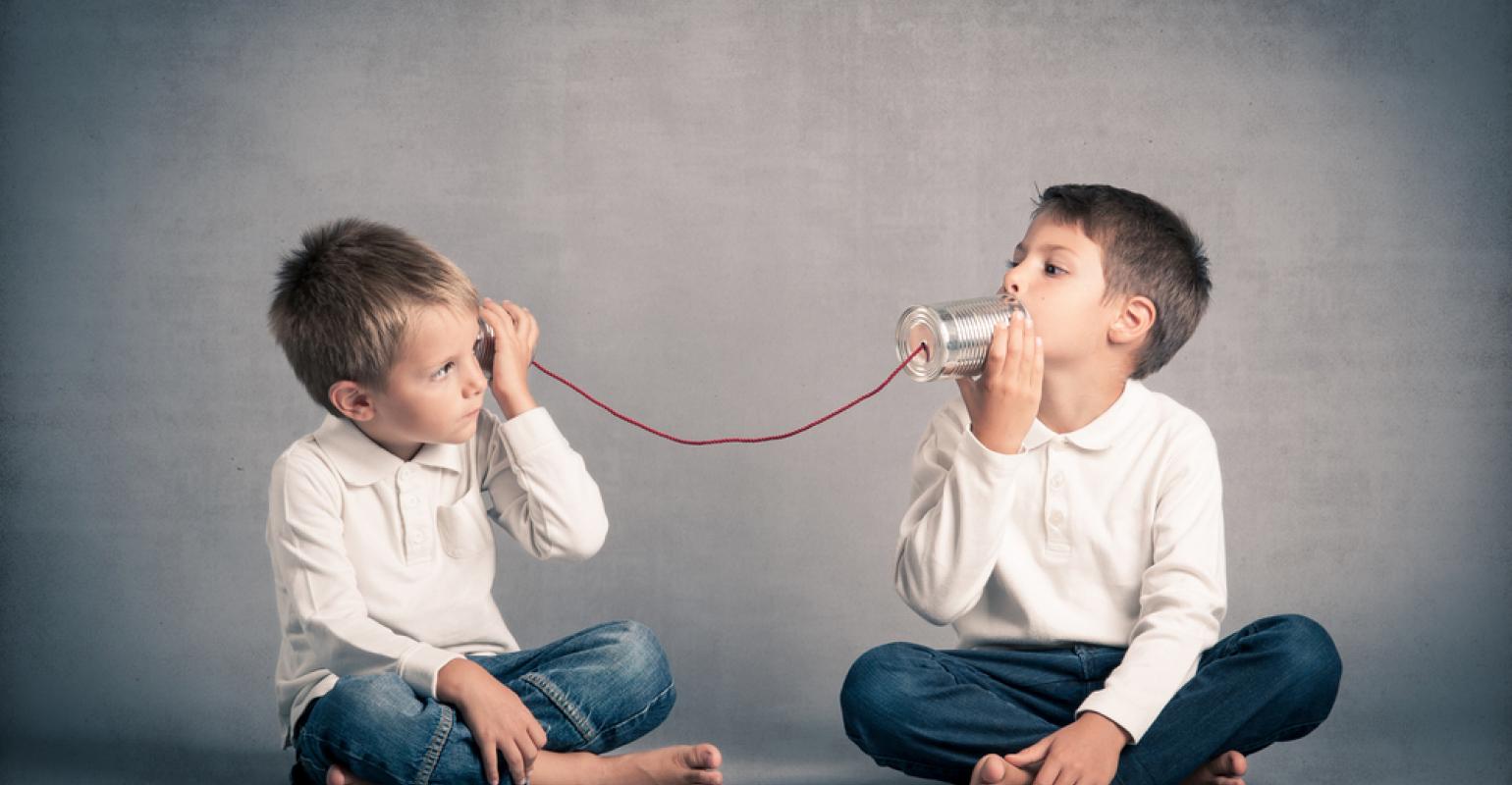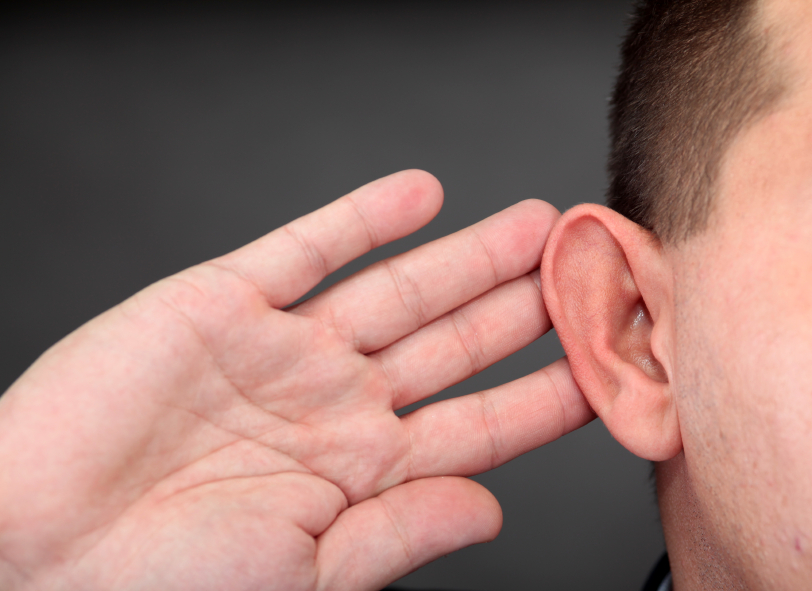'Active listening' helps you become a good communicator
We only remember about 25% to 50% of what we hear. This means that when you talk to your boss, coworker, client or partner for 10 minutes, they are really focused on less than half the time of that conversation.
Listening is one of the most important skills we need to practice. Listening to other people properly will have a tremendous impact on your performance as well as the quality of your relationships.
Such as:
- We listen to the information.
- We listen to understand.
- We listen to enjoy.
- We listen to learn.
Based on all these purposes, you will think that people listen to everything "expertly"! In fact, most are not and research has suggested that we remember about 25% to 50% of what we hear. This means that when you talk to your boss, coworker, client or partner for 10 minutes, they are really focused on less than half the time of that conversation. So sad!
Going back to the problem, the above figure reveals that when you receive good instructions or information, the reality is that even you don't hear the whole message. At this point, you hope that 25 - 50% of the information collected is important, but what if it isn't?

Clear listening is a skill that we all get practical benefits when constantly improving it. By becoming a better listener, you will improve your productivity as well as the ability to influence, persuade, and negotiate with others. Moreover, you also avoid conflicts and misunderstandings. All of these are essential elements to help you succeed at work.
Advice:
Good communication skills require a high level of self-awareness. By understanding your own communication style, you will be very successful in creating good and lasting impressions for others.
Listening is not enough, you have to listen actively
The way to improve that skill is to practice "active listening" (Active Listening). This method requires you to make a conscious effort to not only hear the words spoken by others but more importantly, to understand the whole message being conveyed.
To do this, you must concentrate on listening carefully to the enemy.
You cannot allow yourself to be dispersed by anything else going on around you or make arguments when the opponent stops talking. You also cannot allow yourself to feel bored and lose focus on what they are saying. Because all these things will happen that will prevent you from listening and understanding others.
Advice:
If you find it particularly difficult to focus on what someone is saying, try to recite what you heard in your head. This way will help you consolidate their message and maintain focus.
To improve your listening skills, you need to let others know that you are hearing what they are saying. To understand the importance of this, put yourself in their case. Ask yourself if you actually participated in the conversation when you doubt whether the other person is listening to what you have to say. You wonder whether your message is understood or whether it is worth continuing to speak your mind. Is it like you're talking to a brick wall and that's what you want to avoid.

Admission may simply be a nod or "uh, uh, huh". Basically, you don't need to agree with other people's opinions, you simply signal that you're listening to them. By using body language and other signs to tell the other person that you are still listening, will remind you to pay attention and not let your mind be distracted.
You should also try to respond to the speaker in a way that will encourage him to continue speaking, so you can get more information you need. Although nodding and "uh, uh, ah ." implies that you care about what they say but occasionally, ask a question or give a comment to repeat important information is also how to show your partner that you understand the problem
Advice:
Active listening can give others the impression that you agree with them even if you are not. Another important point is to avoid using this listening technique as a "checklist" of actions to do, instead , really listen . For those who find themselves with signs of distraction, you can practice the Mindful Listening method.
Become an active listener
There are 5 important techniques for practicing active listening, making sure you hear what others say and they also know that you are really listening to them.
1. Notice
Give the person a complete attention, not to be dispersed by anything and confirm the message. Non-verbal communication is also a "loud" way of hearing what you hear.
- Look at the person talking, avoid looking down, look up or look around. However, don't stare at them.
- Get rid of all the thoughts that make you distracted and out of the story.
- Do not let rejection or rebuttal thoughts appear in your mind.
- Avoid distracting thoughts by environmental factors.
- Observe and "listen" to the speaker's body language.
2. Express that you are listening
Use your body language and gestures to convey attention.
- Nodding often (not nodding repeatedly).
- Smiling and using facial expressions.
- Watch your posture and posture so that others feel you are open and approachable.
- Encourage your opponent to continue to say short comments like "yes, yes, ah ."
3. Give feedback
Individual filters, hypotheses, judgments and beliefs can distort everything that has been heard. As a listener, your role is to understand what is said. This requires a reconsideration of the information collected and questioned.
- Reflect on what you have heard by expressing the following: "What I heard is ." and "sounds like you are trying to talk about ." are great ways to give feedback. recovered with the enemy.
- Ask questions to clarify the important points: "What do you want to mention when you say .?" or "Is this your idea?"
- Sometimes, you should also summarize the responders' responses.
Advice:
If you feel overwhelmed by your emotions when giving feedback to what others have to say, ask for more information: "Perhaps I don't understand exactly what you mean and I feel I have another thought. I think you're implying ., is that what you mean? "
4. Defer the judgment

Interrupting others will waste time, as if you are trying to resist the speaker, and limit your ability to understand the whole message.
- Let the speaker finish each issue before asking questions.
- Do not interrupt others with your criticisms.
5. React reasonably
Active listening is a model of respect and understanding. You get new information and perspective. You won't get anything if you "attack" people who speak or lower them.
- Straight, open and sincere in your reaction.
- Courtesy shows your views.
- Treat others in a way that you think they want to be treated by you.
The core points to remember
Becoming an active listener requires a lot of your determination and concentration . Old habits are hard to break and if your listening skills are so weak, then the difficulty will increase in part.
Be careful when listening and reminding yourself often that your goal is to really understand what others are saying. Put aside all thoughts, behaviors and focus only on the message of the opponent trying to convey it to you. Ask questions, review and re-express to make sure you understand the problem. If not, then you will realize what they say to you and what you hear completely opposite.
From today, start learning how to listen proactively to become a better communicator to improve your productivity and develop your relationships sustainably.